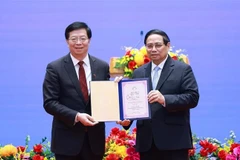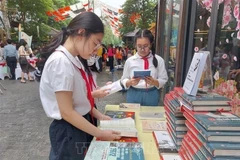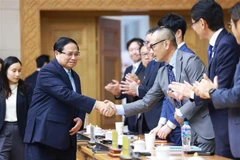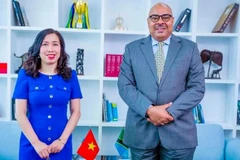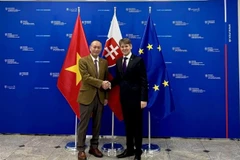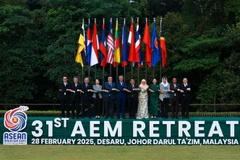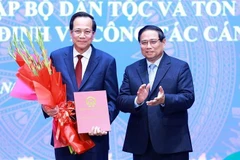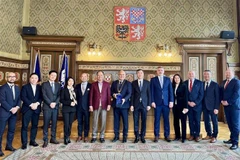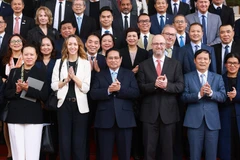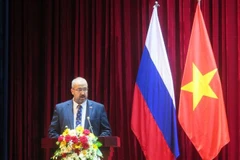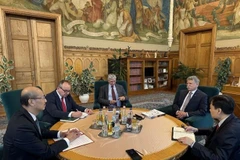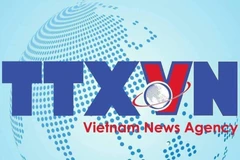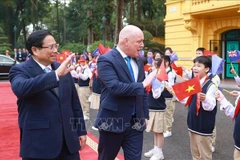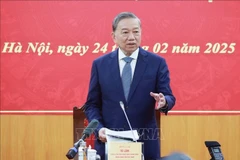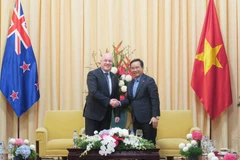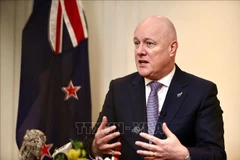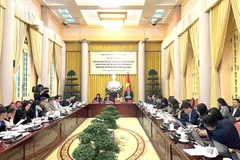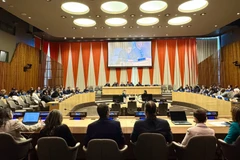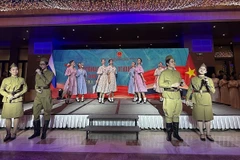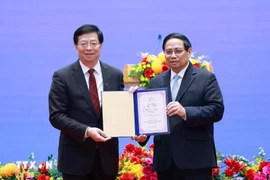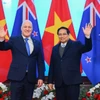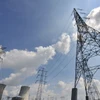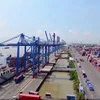InSydney, the Vietnamese leader met with Australian Governor General PeterCosgrove and New South Wales Governor David Hurley, attended abilateral business dialogue, received executives of some of Australiantop companies, and talked to representatives of the Vietnamese communityhere.
He also delivered a speech and discussed withscholars and experts of the Lowy Institute for International Policy –one of the top 30 global think tanks.
During hisspeech, the PM touched upon the regional security issue which attractedgreat interest of participants. He underscored that imminentinstabilities exist caused by complicated developments at several hotspots in the Asian-Pacific region, including the complex situation inthe East Sea.
Peace, stability,security, safety, and freedom of navigation and aviation in the Eat Seais the common interest of countries both inside and outside the region,he said, adding that current tensions and instabilities can only beresolved once all nations, especially sovereignty claimants in the EastSea, comply with international dictates including the 1982 UnitedNations Convention on the Law of the Sea (UNCLOS 1982), refrain fromunilateral actions that complicate the situation, avoid threats and theuse of force, fully and effectively implement the Declaration on theConduct of Parties in the East Sea (DOC), and promptly build a code ofconduct for relevant parties (COC).
PM Nguyen TanDung highlighted that to sustainably maintain regional peace andstability, all countries, besides caring for their own benefits, need topay attention to regional and global issues as well as legitimateinterests of other nations.
He also reiterated the term “strategic trust”, which is a determinant of peace and stability.
In the capital city of Canberra, the Vietnamese leader and hisAustralian counterpart Tony Abbott had talks during which they agreed todeepen the countries’ comprehensive partnership, closely coordinate atregional and international forums, and support each other in thenegotiation and implementation of the Regional Comprehensive EconomicPartnership (RCEP) and the Trans-Pacific Partnership (TPP) agreements.
The two PMs shared the view on the importance ofensuring peace, stability, security, safety and freedom of navigationand aviation in the East Sea and peacefully settling sea disputes incompliance with international law, including the UNCLOS 1982. Theycalled on all parties to fully implement the DOC and refrain fromactions that complicate the regional situation, including coercivemeasures or use of force to unilaterally alter the status quo in theEast Sea. Both sides also underlined the urgency of building a COC.
On this occasion, Vietnam and Australia issued a joint statement,signed a declaration on strengthening their comprehensive strategicpartnership along with four cooperation deals, namely a reciprocal workand holiday agreement, an agreement on implementing the Australia-AsiaProgramme to Combat Trafficking in Persons, a memorandum ofunderstanding (MoU) on war aftermath settlement cooperation, and anotherMoU on Vietnam’s joining of the UN peace-keeping mission.
Following the talks, PM Nguyen Tan Dung met with Speaker of the Houseof Representatives Bronwyn Bishop and President of the Senate StephenParry, and received representatives of the Australia – VietnamFriendship Parliamentarians’ Group and leader of the Labour Party BillShorten.
Visiting New Zealand, he had talks with thecountry’s PM John Key; met with Governor-General Jerry Mateparae,Speaker of the New Zealand House of Representatives David Carter, andleader of the New Zealand Labour Party Andrew Little; attended adialogue with Vietnamese and New Zealand entrepreneurs; and visited theAuckland University of Technology.
At the meetings,the two countries’ leaders consented to intensify the two countries’comprehensive partnership, ultimately building towards a futurestrategic partnership.
The PMs said theircountries will enhance all-level delegation exchanges, diversify formsof contact, and more effectively utilise current cooperation mechanismsto successfully implement signed agreements and targets stipulated inthe second phase of their action programme (2013-2016).
They were unanimous in expanding consultation, policy coordination,and mutual support to address global challenges and promote sharedmatters. They also committed to shortly concluding negotiations on freetrade deals such as the TPP and RCEP agreements.
The Cabinet leaders also underlined the importance of maintainingregional peace and stability and called on concerned parties to resolvesea disputes without force and in line with international law, includingthe UNCLOS 1982.
The two sides issued a jointstatement on enhancing the nations’ comprehensive partnership and signedan agreement on food safety and animal and plant quarantine as well as aprotocol amending their air services agreement.-VNA
